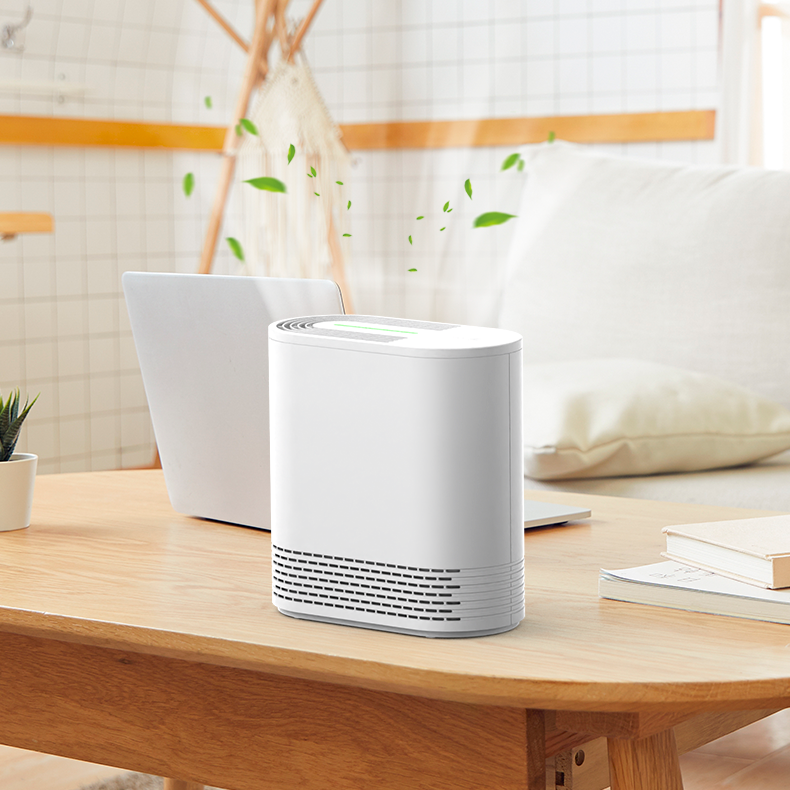Why Choose an Air Purifier for Home: Key Benefits You Should Know?
Transform Your Indoor Air Quality with Modern Air Purification
In today's world, where indoor air can be up to five times more polluted than outdoor air, having an air purifier for home has become less of a luxury and more of a necessity. As we spend approximately 90% of our time indoors, the quality of the air we breathe significantly impacts our health and well-being. The latest advancements in air purification technology have made it possible to create healthier indoor environments, removing harmful pollutants, allergens, and other airborne particles that could compromise our respiratory health.
The growing awareness of indoor air quality has led to an increased interest in home air purification systems. These devices work tirelessly to clean the air we breathe, offering protection against various airborne contaminants that can trigger allergies, asthma, and other respiratory conditions. Understanding the numerous benefits of installing an air purifier for home can help you make an informed decision about improving your indoor air quality.
Essential Health Benefits of Home Air Purification
Allergy and Asthma Relief
One of the primary advantages of using an air purifier for home is its ability to reduce allergy and asthma symptoms. By removing common triggers like pollen, pet dander, and dust mites from the air, these devices create a more comfortable living environment for those with respiratory sensitivities. High-efficiency particulate air (HEPA) filters can capture particles as small as 0.3 microns, ensuring that even the tiniest allergens are removed from your indoor air.
Regular use of an air purifier can lead to decreased frequency of allergy attacks and reduced dependency on medication. Many users report improved sleep quality and better daytime productivity after installing an air purifier in their bedrooms.
Protection Against Airborne Diseases
In light of recent global health concerns, the role of air purifiers in reducing the spread of airborne viruses and bacteria has gained significant attention. Advanced air purifiers equipped with UV-C light technology can effectively neutralize harmful microorganisms, providing an additional layer of protection for your household. While no air purifier can guarantee complete protection against illness, it can significantly reduce the concentration of infectious particles in the air.
The ability to capture and eliminate microscopic pathogens makes an air purifier for home an essential tool in maintaining a healthier indoor environment, especially during flu seasons or times of increased health concerns.
Environmental Impact and Air Quality Management
Eliminating Indoor Air Pollutants
Modern homes can harbor numerous sources of indoor air pollution, from cleaning products and cooking fumes to off-gassing from furniture and building materials. An air purifier for home effectively removes these pollutants, including volatile organic compounds (VOCs), smoke particles, and other harmful chemicals that can accumulate in enclosed spaces.
The continuous filtration process ensures that new pollutants are constantly removed, maintaining optimal air quality throughout the day. This is particularly important in urban areas or locations near high-traffic roads where outdoor pollution can easily seep into homes.
Sustainable Living Solutions
Today's energy-efficient air purifiers contribute to sustainable living while providing clean air. Many modern units are designed with eco-friendly features, such as programmable timers and energy-saving modes, reducing their environmental impact while maintaining effective air purification. The long-term benefits of using an air purifier for home extend beyond personal health to environmental consciousness.
By choosing an energy-efficient model, homeowners can maintain excellent air quality while minimizing their carbon footprint and energy costs.

Lifestyle Enhancements and Practical Benefits
Odor Control and Fresh Environment
Beyond filtering particles and pollutants, air purifiers equipped with activated carbon filters excel at eliminating unpleasant odors. Whether it's cooking smells, pet odors, or musty scents, an air purifier for home can help maintain a fresh-smelling environment. This feature is particularly valuable for open-concept homes where cooking odors can quickly spread throughout the living space.
The ability to maintain a consistently fresh-smelling home contributes to a more pleasant living environment and can even help reduce stress levels associated with persistent unwanted odors.
Improved Sleep Quality
Clean air has a direct impact on sleep quality. By removing irritants and allergens from the bedroom air, an air purifier can help reduce nighttime allergies and breathing difficulties that might otherwise disturb sleep. Many users report waking up feeling more refreshed and experiencing fewer morning congestion issues after installing an air purifier in their bedroom.
The gentle white noise produced by air purifiers can also create a soothing environment conducive to better sleep, making them a valuable addition to any bedroom setup.
Maintaining and Maximizing Your Air Purifier's Performance
Regular Maintenance Requirements
To ensure optimal performance from your air purifier for home, regular maintenance is essential. This includes timely filter replacements, cleaning external surfaces, and checking the unit's performance indicators. Most modern air purifiers come with filter replacement indicators and easy-to-follow maintenance schedules that help users maintain peak efficiency.
Understanding and following these maintenance requirements not only extends the life of your air purifier but also ensures consistent air quality improvement throughout your home.
Optimal Placement Strategies
The effectiveness of an air purifier largely depends on its placement within your home. Strategic positioning in high-traffic areas or rooms where you spend the most time can maximize its benefits. Consider factors such as room size, airflow patterns, and potential pollution sources when deciding where to place your air purifier for home.
For larger homes, multiple units might be necessary to ensure comprehensive coverage and maintain consistent air quality throughout different living spaces.
Frequently Asked Questions
How long should I run my air purifier each day?
For optimal results, it's recommended to run your air purifier for home 24 hours a day. Most modern units are designed for continuous operation and feature energy-efficient modes that make this practical and economical. If continuous operation isn't possible, aim for at least 12 hours daily, focusing on times when you're at home.
When should I replace the filters in my air purifier?
Filter replacement timing varies depending on your air purifier model and usage patterns. Generally, HEPA filters should be replaced every 6-12 months, while activated carbon filters might need replacement every 3-6 months. Many modern units include electronic indicators that alert you when it's time for filter replacement.
Can air purifiers help with pet allergies?
Yes, air purifiers are highly effective at reducing pet allergies. Models equipped with HEPA filters can capture pet dander, hair, and other allergens that trigger reactions. For best results, choose an air purifier specifically designed to handle pet-related air quality issues and place it in areas where your pets spend the most time.

 EN
EN
 AR
AR
 NL
NL
 FR
FR
 DE
DE
 EL
EL
 HI
HI
 IT
IT
 JA
JA
 KO
KO
 PL
PL
 PT
PT
 ES
ES
 ID
ID
 VI
VI
 TH
TH
 TR
TR
 MS
MS
